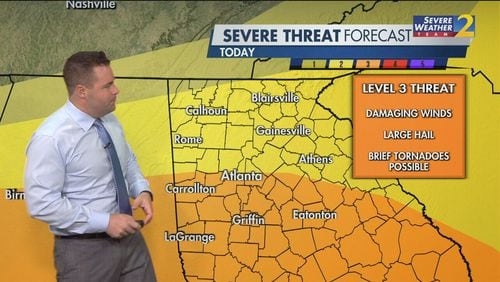Prospective jurors in the racketeering case against former President Donald Trump and his 18 co-defendants got an extra layer of security Monday when the judge overseeing the case ordered additional safeguards to protect their identities.
Once the cases reach trial, defendants, reporters and observers will be prohibited from recording, photographing or identifying jurors in any way that might reveal who they are, where they live or other personal details about them, Fulton County Superior Court Judge Scott McAfee ruled. McAfee ordered that lawyers only refer to jurors by their number in court filings or in their remarks in open court.
Fulton County District Attorney Fani Willis asked for the extra level of protection after members of the grand jury that indicted Trump and his allies saw their personal identifying information spread across the internet by people angry with the criminal charges they handed up.
Willis has previously disclosed that she has been the target of racist comments, vitriol and violent threats since she launched her investigation of Trump in February 2021 and, later, the record label and alleged street gang Young Slime Life. She travels with an around-the-clock security detail at work and at her home, and last year gave her frontline staff bulletproof vests and keychains with panic buttons.
A coalition of media outlets that includes the Atlanta Journal-Constitution objected to the request on grounds that the courts in Geogia have traditionally been open to press coverage, including reporting on the composition of juries. The only exception McAfee allowed in his order is the announcement of a verdict by the jury foreperson, the audio of which may be recorded.
While McAfee’s order offers some additional safeguards, in reality not much is changed. Standing court rules prohibit media from recording and photographing jurors in criminal trials.
About the Author






